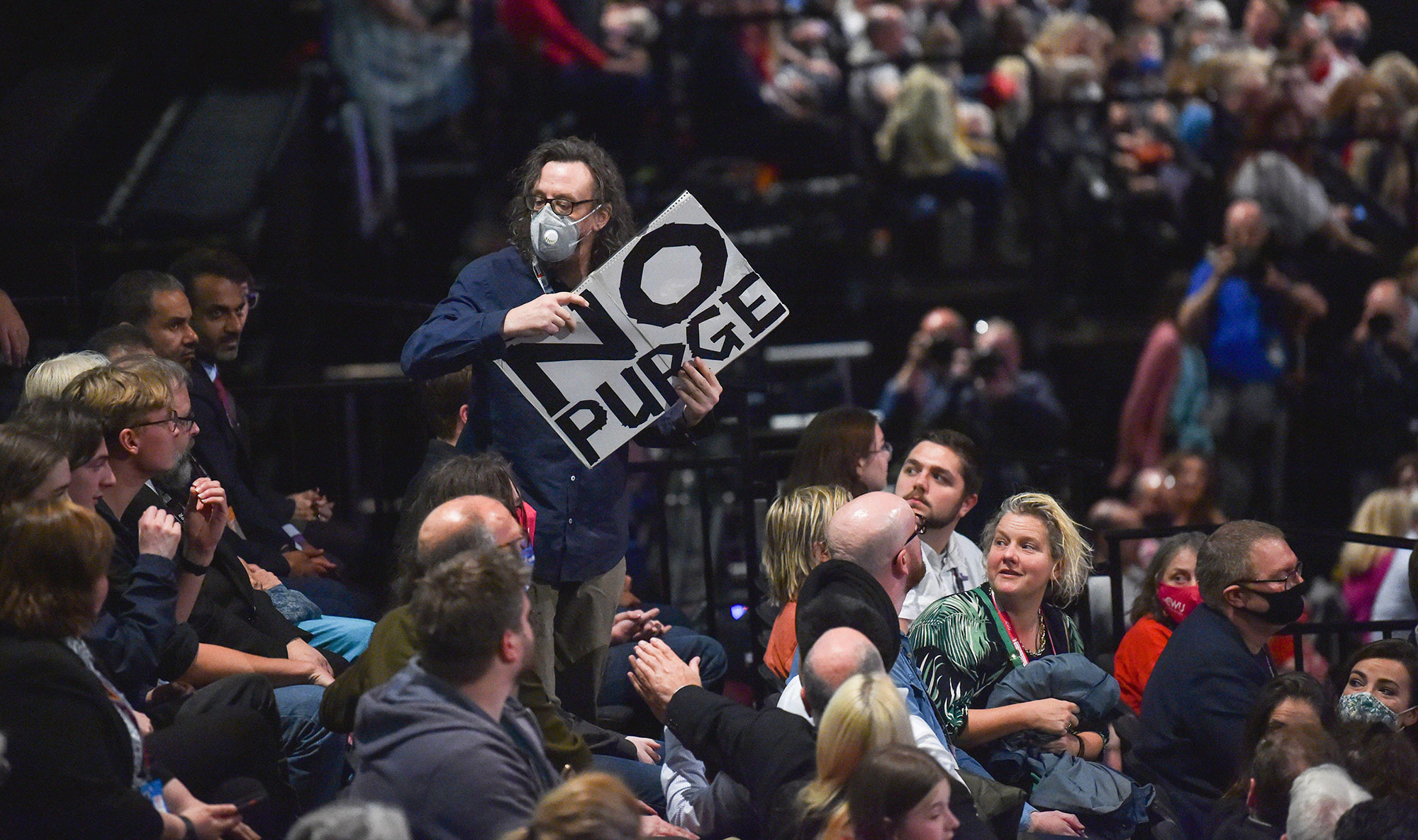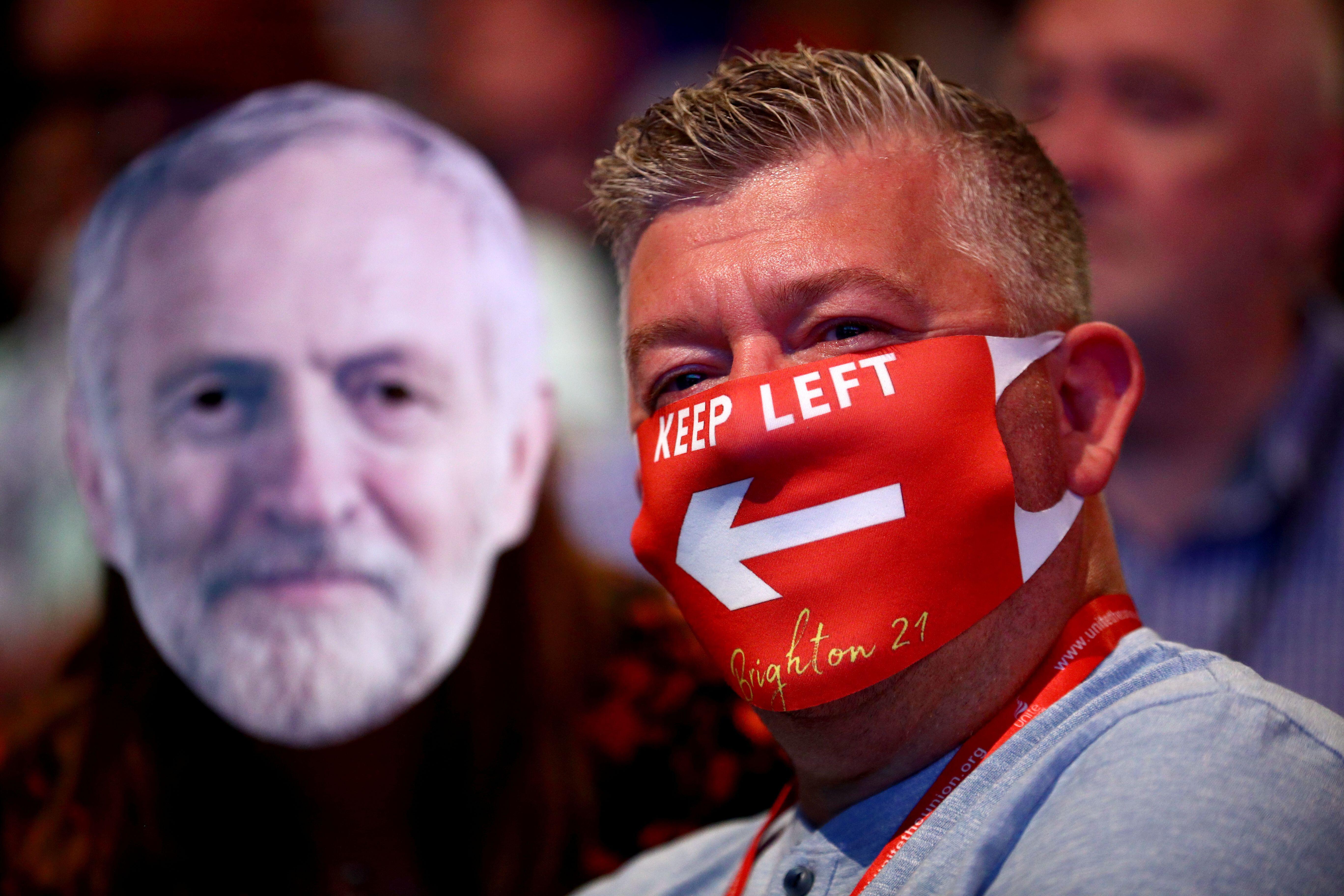The New Left
7 min read
The departure of Jeremy Corbyn as leader last year seemed to leave the Labour left out in the cold. But following the expulsion of a number of his supporters, has the party swung back to the centre? Or will the new left fight back? Laurence Sleator reports.
On a trip to a balmy Glasgow as part of his UK-wide summer “listening tour”, Keir Starmer unexpectedly threw down the gauntlet to the Labour left.
“We have to turn the Labour Party inside out,” he said. “Too many of our members and supporters think winning an internal argument in the Labour Party is changing the world – it isn’t. We’ve got to be real.”
His comments, in an interview with the Financial Times, were seen as an implicit threat to those in his party still not on board with his leadership: change is coming, whether you like it or not.
But if his words were supposed to quell dissent, the truth is they were not universally welcomed, and now the left is fighting back, beginning to cultivate the strategy, policy ideas and personnel they hope can return them to the top of the Labour Party.
“For those on the left feeling alienated by Sir Keir Starmer’s regime, the wider socialist movement is organising and we welcome you,” wrote former Labour Colne Valley MP Thelma Walker after resigning from the party last year.
Walker now chairs the Progressive Alliance of the Left (PAL), bringing together disgruntled ex-members and representatives from Labour associated pressure groups.
She told The House the seedlings of a new force within Labour are in the Socialist Campaign Group (SCG), a group of MPs who have been critical of Starmer during his time as leader.
Originally founded by Tony Benn almost 40 years ago, the group now contains around 34 MPs, including stalwarts of the left Diane Abbott, John McDonnell and the talismanic former leader Jeremy Corbyn.
But with all three lilkely to be nearing the end of their parliamentary careers, fresh hopes in the SCG including Dawn Butler, Zarah Sultana and Richard Burgon will soon be expected to take on the mantle.
These more recent additions have amassed large social media followings, with their videos of emotive Parliamentary speeches recounting their own experiences or criticising a specific government policy achieving thousands of views online.

While Corbyn, McDonnell and former London mayor Ken Livingstone gained an intellectual underpinning in socialism at the feet of Benn, Ralph Miliband and Tariq Ali as members of the Independent Left Corresponding Society, the famous left book club of the 1970s and 80s, today’s generation is inspired by economists Joseph Stiglitz and Paul Krugman on the reform of market economies. The work of Canadian author Naomi Klein has also been particularly influential, in formulating plans for a green new deal.
And there are further updates. Meetings in dingy village halls and secluded parliamentary offices have been swapped for mass Zoom invitations and YouTube channels to get the message out and engage supporters.
Last year, the SCG produced an 89-page policy pamphlet – not overly different to a manifesto – with essays from members on subjects from plans for public ownership of social care to boosting the minimum wage.
For ex-Labour MP Thelma Walker, more is needed – the time has come for a breakaway. “I’ve been really patient with my friends in the SCG, but I would really like them now to be brave… I would like them to give up the whip and become independent,” she says.
“People on the left are now saying ‘oh come on, we need more than a strongly worded letter or a tweet criticising Starmer’.”
Much of the future of the left will be out in force in Brighton in September; not, however, at the annual Party Conference, but at The World Transformed festival which, although separate, runs parallel to the main event.
Organisers – who have partnered with the SCG – bill the festival as a “rallying point for the new left within the Labour Party”, criticising what they describe as Starmer’s “vacuous and inept” leadership.
Participants will debate big picture ideas, asking questions such as, “Should socialists leave the Labour Party?” and “Starmer out? – and if so, how?”
But whilst some of the action may be elsewhere, Party Conference promises to be a crunch moment for Starmer.
Nadia Jama, who sits on Labour’s ruling National Executive Committee, told The House: “I voted for Rebecca Long Bailey and Richard Burgon as my leader and deputy and it strikes me how different things may have been under them. We are not hearing the same vision from Keir. Maybe at Conference we will see this vision.”
She believes the ideas Starmer should look towards are already being discussed within the party.
“John McDonnell, Richard Burgon, Jon Trickett have all been consistent in their support for a socialist agenda. Olivia Blake has been coming out with good messaging on the climate crisis, Zarah Sultana also has been front and centre. People in the party are referring to the things that matter and that can make a difference.”
For the left, internal dissent has not emerged from a vacuum and is instead the result of 18 months of what they call a “demoralisation strategy” orchestrated from the very top.
The alleged charge sheet against Starmer is a long one: sacking most of his predecessor’s supporters from the shadow cabinet; reneging on some 2019 election policy pledges; ordering Labour MPs to abstain on key legislation; and – most egregiously from the left’s perspective – suspending Corbyn from the Parliamentary Labour Party following his response to the Equality and Human Rights Commission (EHRC) report into Labour and anti-Semitism, then refusing to reinstate him.
The decision in July to proscribe four left-wing groups whose aims were deemed incompatible with Labour values only compounded their fury.
Such measures were seen by some as a breach of the leadership platform Starmer stood on, and a contravention of the 10 pledges made during his campaign, including the promise to “unite the party”. Party membership is now said to stand at around 430,000, down by 120,000 from when Starmer took over.
Starmer’s allies unsurprisingly see this differently, pointing towards another of his pledges to “eradicate the scourge of anti-Semitism” and improve the culture of a party rebuilding from its worst election result since 1935.

Evidence suggests critics are in the minority, with a recent YouGov poll of almost 900 Labour members showing 55 per cent of respondents thought their leader was doing a good job.
Speaking about the attitude of those on the Labour left, one centrist NEC source says: “There’s a constant story about loss, marginalisation and being stitched up. Eventually you run out of troops. No-one will spend 45 quid a year to feel like they are being kicked in the face.
“Keir and David Evans [Labour’s general secretary] really believed this nauseating stuff about unity,” they added. “They really thought they could end the wars between left and right. And these guys picked a fight they thought they could win and turned it into an existential threat to the Labour Party.”
The source added that the future for the left of the party remains uncertain: “Some in the left will carry on, others will go to the Greens, others to the Socialist Workers Party. One thing is for certain [under Starmer] if you entertain anti-Semitism you will be out.”
For James Schneider, former strategic head of communications for Corbyn and still a Labour member, there’s no doubt a “showdown” between the party’s factions is on the horizon.
“Their [the current leadership’s] strategy is now remaking the Labour Party,” he says. “In their view the Labour Party needs to become a political franchise, more like the [US] Democratic Party, stuffed to the gills with donor money and corporate Dems.”
Schneider instead wants to bring the left forces within the party together under one homogenous block engaging groups outside Labour including the likes of Black Lives Matter, Extinction Rebellion, Sisters Uncut and the Palestine Solidarity Campaign, pooling resources to build a coalition capable of taking the party back in the years ahead.
With both sides in open warfare and offering conflicting ideas on how the party recovers, the stage is set for Brighton to host the most tempestuous Labour Party conference since, well, the last time they gathered.
